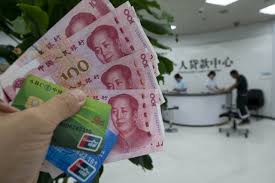RMB planned to join UAE payment system to enhance financial integration

China Economic Net
Abu Dhabi: Buna, the UAE-based cross-border payment system, will add currencies from India, China, Pakistan and African and European countries in 2024-25.
“We are working to implement a number of initiatives to link the Buna platform and other payment methods from other countries including China, India and Pakistan in addition to continental payment systems in Europe and Africa,” Fahad Al Turki, chairman of the Arab Regional Payments Clearing and Settlement Organization (Buna), said on the World Governments Summit in Dubai. At present, the Dirham accounts for the majority of intra-Arab payments on the Buna, a phenomenon that highlights its important position in the field of international payment settlements.
“It is expected that starting from the fourth quarter of this year, the connection work will be gradually completed based on the readiness of each country’s payment system,” told Mehdi Manaa, CEO of Buna. He emphasized that transaction volumes have increased from hundreds per month in 2022 to thousands per month in 2023, with the goal of achieving hundreds of thousands of transactions this year and millions in the near future. Being a multilateral platform, Buna not only facilitates opportunities for economic and financial integration, but also strengthens investment ties between Arab countries and trading partners on all continents.
When it comes to the joining of RMB, “it will bring obvious positive effects to the economic cooperation between China and Arab countries (the United Arab Emirates and the entire Arab world). In the long term, from reducing exchange rate risks to reducing foreign exchange costs to expanding trade networks and attracting more international investors and partners, international trade facilitation can be significantly promoted in many aspects,” Ren Haiping, Deputy Head of Department of. Strategic Research, China Center for International Economic Exchanges, said in an interview with China Economic Net.
“First, the move enables Chinese companies and Arab and global partners to more widely use RMB for international trade settlement. In the past, settlement in U.S. dollars was relatively common, which could cause businesses to be affected by fluctuations in the U.S. dollar exchange rate. The joining of RMB allows companies to more freely choose settlement currencies, thereby reducing exchange rate risks in cross-border trade, which means a more stable trading environment for both Chinese exporters and importers. Exporters can better plan cost and pricing strategies, while importers can better manage currency risks,” Regarding the inclusion of the RMB, Ren made a detailed analysis item by item.
“Secondly, it expands trade partnerships between China and other countries. All partners could trade with China more easily. More and more countries and regions, including the UAE, have seen the potential of the RMB in international trade. This will help China establish mutually beneficial and win-win partnerships with more countries not only in the Arab world but also around the globe, thus further expand China’s share in international trade.”
“The last, the joining of RMB reduces the cost of international trade and increases transaction efficiency. On the one hand, cross-border settlement in RMB could reduce foreign exchange conversion fees and bank handling fees, by which means more value can flow to actual trade rather than financial intermediaries. On the other hand, cross-border settlement in RMB is usually faster. This is good news for both sides of international trade, as transactions can be completed more quickly and goods and services can reach their destinations faster, not only improving transaction efficiency but also reducing cargo detention and inventory costs. In addition, it is easier for companies to obtain loans and financing. By gaining financial support more easily, companies can expand their trade scale, participate in more international trade activities, and promote global trade to get out of the trough as soon as possible.”
So far, Middle Eastern countries such as the UAE, Saudi Arabia, Egypt, and Iran have joined the BRICS as new members. Pakistan also plans to join this year and has submitted its application. As a financial bridge, Ren indicate that the cross-border platform provides financing and payment solutions, supports the financing needs of the economic construction of BRICS countries, and at the same time promotes financial technology innovation and the development of the digital economy. On the other hand, such systems also face challenges. For example, differences in payment regulations and policies between countries require the formation of unified standards and specifications, the interoperability and security of cross-border payment platforms need to be strengthened, as well as continuous efforts are also needed to build trust among the BRICS countries. Nevertheless, there is no doubt that by strengthening cooperation, supervision and innovation in an all-round way, Buna will further promote the coordinated development of BRICS countries and achieve mutual benefit and win-win results.





